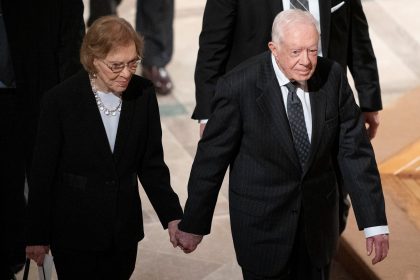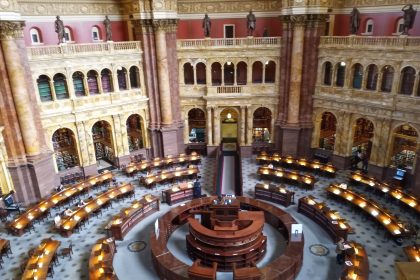Older Americans Need Financial Literacy for Self-Sufficiency, Witnesses Tell Senate

WASHINGTON — America’s senior population is growing but the resources to help them maintain financial self-sufficiency are falling behind, according to advocates for the elderly at a Senate hearing Thursday.
The Senate Special Committee on Aging held the hearing as it reviews options for closing the gaps listed in a report it released this week.
It showed that 24% of workers close to retirement are not fully aware of their financial needs after they leave the workforce.
The report demonstrated that a significant portion of the elderly and disabled population lacks the financial literacy they need to properly arrange their finances in retirement.
About 11,000 Americans daily are turning 65 years old, making them eligible for most government retirement benefits, according to the Senate Aging Committee.
Many of them are uncertain about the appropriate time to apply for Social Security and Medicare, lawmakers said. Others lack a financial backstop from their savings and investments.
“These decisions can be daunting for anyone, no matter who you are,” said Sen. Bob Casey, D-Pa., chairman of the Senate Aging Committee. “They often don’t know where to turn.”
A primary program to assist low-income elderly and disabled persons is the federal Supplemental Security Income program. It provides benefits through the Social Security Administration to about 8 million Americans averaging around $600 a month.
The Biden administration proposes raising the SSI benefit to at least the poverty level, which would be about $1,100 a month. Biden and fellow Democrats also want to raise the income thresholds for eligibility to make the benefits more widely available.
Sen. Elizabeth Warren, D-Mass., said SSI needs to be updated to deal with new challenges faced by America’s aging population since Congress approved the program in 1974.
“It’s time for Congress to make those reforms,” Warren said. “We can and we must change the law so that it fulfills its original goals.”
Government and nonprofit witnesses told the Senate panel higher payments would help but they would be most effective if beneficiaries learn how to properly manage their money.
Gerri Walsh, a vice president at the Financial Industry Regulatory Authority, said many older Americans have deluded themselves into believing they are good money managers. FINRA is a private corporation that self-regulates its member brokerage firms and exchange markets.
She cited a five-question financial literacy quiz that showed 42% of American adults exhibited high levels of financial literacy in 2009. By 2018, the figure fell to 34%.
A low level of financial literacy often is associated with greater risk of health problems among the aged, such as cognitive deterioration and Alzheimer’s disease, she said.
She recommended greater outreach to older Americans that draws in resources from government agencies, nonprofit organizations and even local libraries.
“It’s critical that there are multiple players in the field,” Walsh said.
Cindy Hounsell, president of the Women’s Institute for a Secure Retirement, said the COVID-19 pandemic has exacerbated financial problems for older women. Millions of them lost their jobs or incurred more debt as they drained their savings to pay routine expenses.
“We have people contacting us who have been living in their cars for the past couple of years,” Hounsell said.
She said women already were challenged in retirement when they outlive their husbands, confront higher medical bills than most men or try to survive on minimal financial resources.
Sen. Tim Scott, R-S.C., said the financial plight of some older Americans shows that education on financial literacy needs to begin young, perhaps as soon as high school, to avoid catastrophes later in life.
Tom can be reached at [email protected]
























